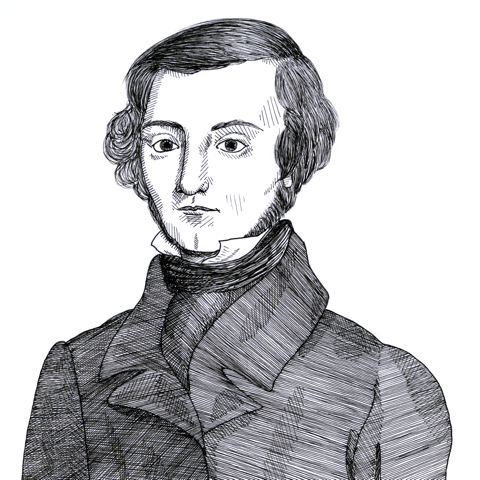
Tocqueville on the absence of government in America (1835)
Found in: Democracy in America: Historical-Critical Edition, vol. 1
What struck Alexis de Tocqueville (1805-1859) when he visited the U.S. in 1831-32 was the absence of visible signs of government compared to what he was used to seeing in Europe:
The State
What most strikes the European who travels across the United States is the absence of what among us we call government or administration. In America, you see written laws; you see their daily execution; everything is in motion around you, and the motor is nowhere to be seen. The hand that runs the social machine escapes at every moment…
The Revolution in the United States was produced by a mature and thoughtful taste for liberty, and not by a vague and undefined instinct for independence. It was not based upon passions for disorder; on the contrary, it proceeded with love of order and of legality.